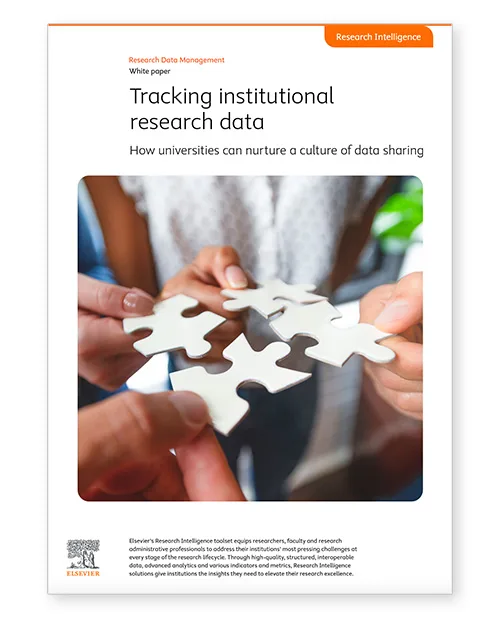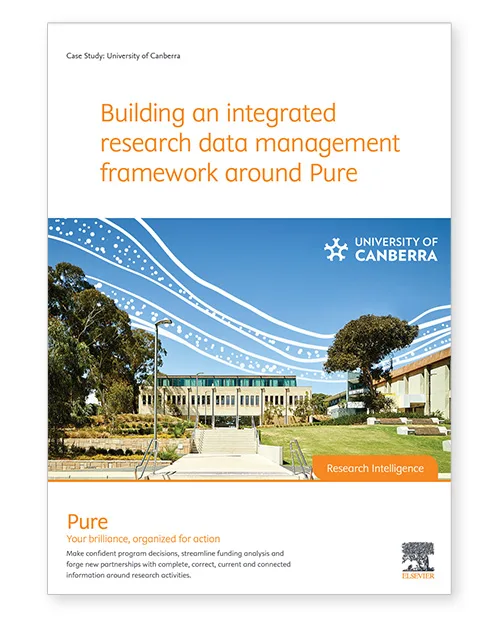Ready to find out how it works for your institution?

Unfortunately we don't fully support your browser. If you have the option to, please upgrade to a newer version or use Mozilla Firefox, Microsoft Edge, Google Chrome, or Safari 14 or newer. If you are unable to, and need support, please send us your feedback.
We'd appreciate your feedback.Tell us what you think! opens in new tab/window
With today’s high level of interest in research integrity, transparency and openness, reinforced by policies sharing this direction, research data is rapidly rising up the agenda and now it’s time for action. Find out how to elevate your research excellence with Elsevier’s Research Intelligence toolset.
Read the whitepaper now opens in new tab/window
Use cases for research tracking opens in new tab/window
Your 10-step plan to begin tracking your institutional research data opens in new tab/window

Discover what the University of Canberra did in response to The Australian Code for the Responsible Conduct of Research which came into effect in 2019 and dictated principles of how data is stored, accessed and shared, and laid the onus of compliance on institutions and individual researchers.
Download the University of Canberra case study opens in new tab/window

10 things I wish I had known before my institution introduced RDM
Download the fact sheet for librarians opens in new tab/window

6 great reasons you should engage with research data management
Download the fact sheet for researchers opens in new tab/window

This work illustrates how clustering of author communities can be improved by using metadata about the authors (such as subject area or institutional affiliation) to supplement network structure based on co-authorship or citation relationships. Using such metadata can improve clustering significantly, both in terms of human interpretability and by allowing detection of smaller groups – but weighting metadata too highly in relation to network structure can be detrimental.

